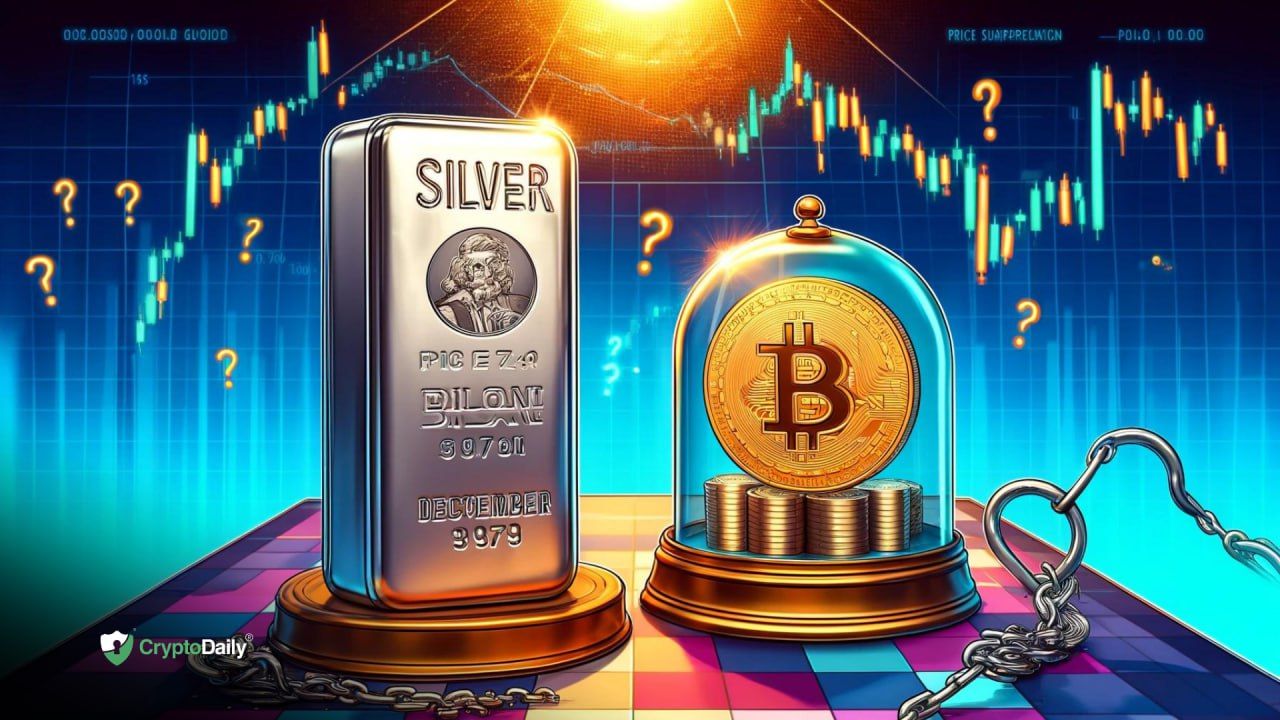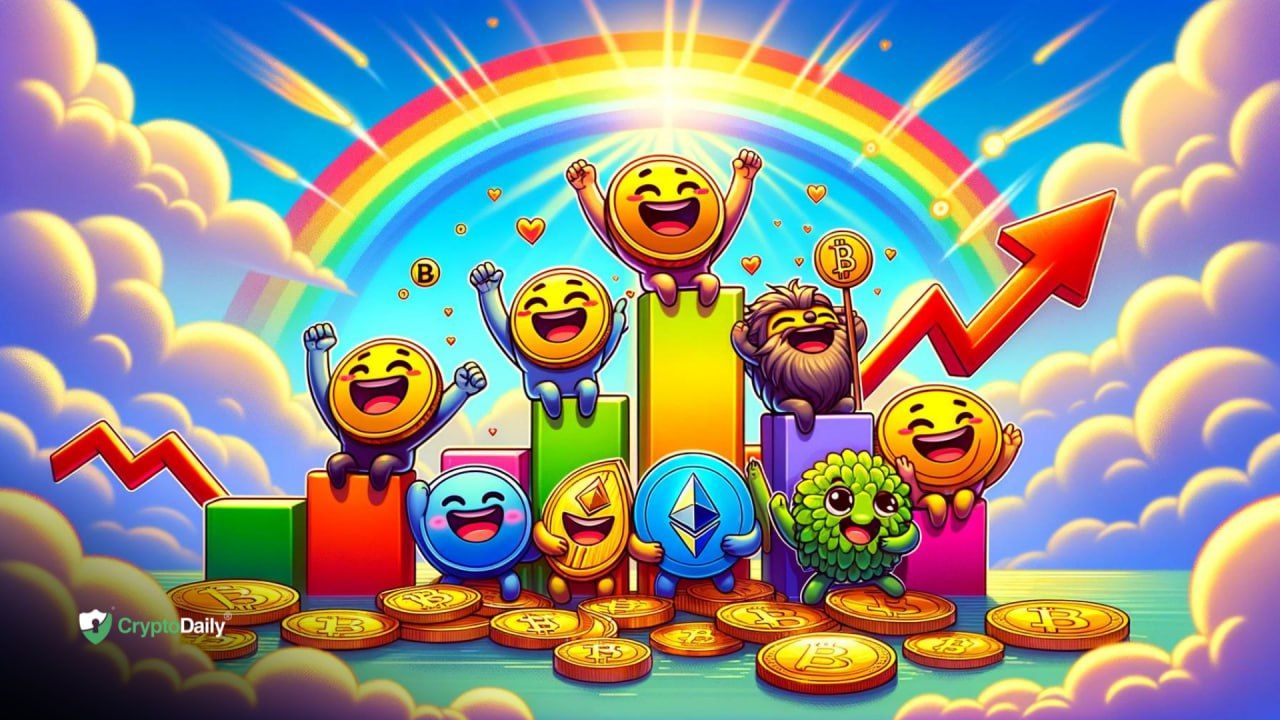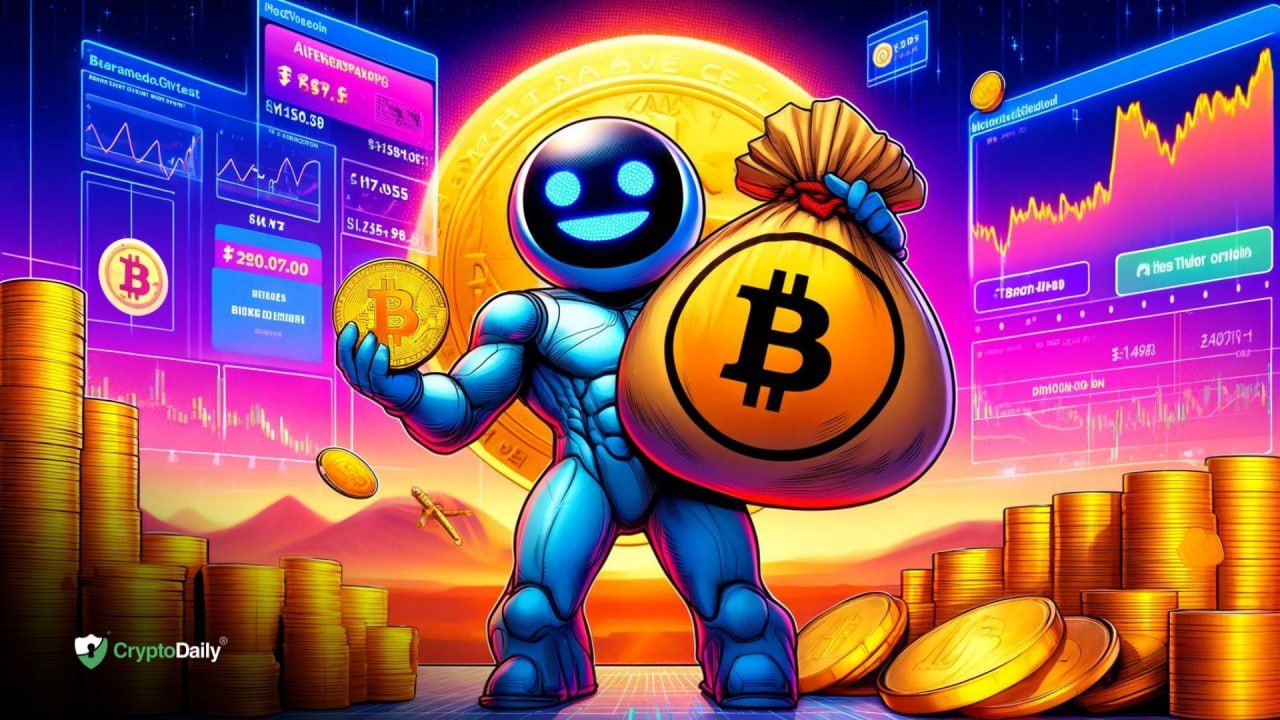Silver has just reached a price of just over $26, the same price that was seen all the way back in December of 1979. Such extreme price manipulation by Wall Street banks is what has kept silver well below these levels since then. Now that Blackrock and Wall Street have entered the game for Bitcoin, could the same thing be done to the king of the cryptocurrencies?
Suppressed for 44 years
Source: Coingecko/Trading View
December 1979 is quite possibly a date before many holders of bitcoin were even born. Can it be conceived that a precious metal as important as silver can have been suppressed by the big US banks for 44 years? As can be seen in the chart above, silver even went on to register a price of around $48 in January of 1980, nearly double of what it is today.
Silver debasement as a monetary metal
Silver used to be a monetary metal, just like gold. In the UK, for hundreds of years, silver was part of the coinage. From 1582 onwards, British coins were composed of .925 fine silver, with the rest made up of copper. This was known as ‘sterling silver’.
However, just as happened with Roman coins towards the end of that particular imperial power, the debasement of the currency began to take place. Where Roman silver coins had their edges clipped before being paid out to the legionaries who held the frontiers, in Britain in 1920, the silver coinage was debased to .500 fine silver, and then from 1947 until the current day, the coinage lost its silver content entirely, as coins were then struck in cupro-nickel, which did not contain any silver at all.
Silver as an industrial metal
Nevertheless, in spite of losing its place as a monetary metal, silver has continued to hold immense value as an industrial metal. Far more so than gold, silver is used across many industries. Especially in technology, silver is completely irreplaceable for the qualities that it possesses in the use of computer parts and chips, phones, solar panels, car batteries, armaments, etc.
When it comes to mining, there are few mines that only produce silver. Most of the silver production (70%) comes as a by-product of mining other metals.
How silver price has been suppressed
Going back to the price of silver, the reader could be asked to think of an asset that has just hit the price it was at 44 years previously. There will not be many, if any, candidates.
That silver is under-valued is beyond question. So how have the major banks kept the silver price so low for so long? Derivatives is the answer. The COMEX (Commodity Exchange) in the US, and the LBMA (London Bullion Market Association) are where silver is primarily traded for the whole world.
The complex world of silver derivatives trading is far too difficult to go into, but suffice to say that some of the leading banks and other financial institutions have occupied a short position for silver over past decades. The price rises, and the shorts hammer it back down again, the banks buy silver at incredibly cheap rates, and then they allow the price to rise again before the same process takes place once more - rinse and repeat.
It is for this reason that silver has become probably the most undervalued asset on the planet. Now that the price has hit a level that was seen back in 1979, could silver be likened to a beach ball held below the water, and ready to burst skywards, or will the shorters squash this price rise again with paper derivatives?
Could bitcoin be suppressed by Wall Street?
So what about bitcoin? Could the likes of Blackrock start building paper bitcoin derivatives on top of their Spot Bitcoin ETF (IBIT)? At the moment it seems unlikely. Blackrock is only custodying the bitcoin of its clients, and does not own it. However, that said, Blackrock is in bed with the US government and its agencies, and one never knows what kind of master plan might be hatched at some future date.
China enters the fray
To add to the plot, Spot Bitcoin ETFs are near to being approved in Hong Kong. This means that China is about to enter the game. In fact, it might be taken that China is already in the game, given that a good proportion of bitcoin mining still takes place there, even though the authorities made it illegal.
The real difference with the very likely Chinese approved Spot Bitcoin ETFs about to be launched in Hong Kong, is that these ETFs will be “in kind”, which means that they will be able to be redeemed in $BTC instead of in cash, which is the case with the US approved Spot Bitcoin ETFs. This is a really big deal, and could help to tip the balance towards Hong Kong (China) in this respect.
A free market for silver and gold is an impossibility
To conclude, both silver and gold, even though they are ‘hard’ money, have been put into a straitjacket of price suppression by the traditional fiat monetary system. The dollar and all other fiat currencies just could not survive if both silver and gold were allowed to go to their free market prices. How many people would seek to buy them if this were allowed to happen, further crashing fiat currencies with nothing backing them except government promises and thin air?
Bitcoin is different
Bitcoin is different. For one, it is outside of the monetary system. No government nor any agency or third party has control over issuance or is able to suppress it. For two, the issuance is known by everyone and is concreted in code. There will only ever be 21 million bitcoins in circulation, and unlike gold or silver, more than this cannot be mined into existence.
Disclaimer: This article is provided for informational purposes only. It is not offered or intended to be used as legal, tax, investment, financial, or other advice.





